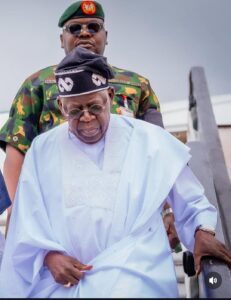
Former President Muhammadu Buhari meant different things to different people. To some, he was frugal, honest, and a man of character. To others, he squandered opportunities to truly reform Nigeria.
Since the announcement of his death, public opinion has been sharply divided. Some reactions have been harsh and unfiltered; others more measured or even sympathetic.
In Africa, there’s a popular saying that we should not speak ill of the dead. Whether that principle is right or wrong, one thing remains true: how we speak of the dead offers a lesson to the living. It reveals what history might remember about them and, by extension, how the living might be remembered in their own time.
During Buhari’s first stint as Head of State, he had his shortcomings, no doubt. But Nigerians were beginning to experience a kind of reorientation.
Discipline and anti-corruption were championed thanks in large part to the influence of his deputy, General Tunde Idiagbon.
This tough stance earned Buhari significant respect and, eventually, helped pave the way for his return as a democratically elected President in 2015.
However, many Nigerians who believed Buhari’s second coming would quickly fix the country were left deeply disappointed. What they hoped would be a turning point soon became a mirage.
His death in a London hospital has, in many ways, become a metaphor for the failure of his administration to invest meaningfully in Nigeria’s health sector.
A serious leader would not abandon such a critical part of national development.
After all, if the United Kingdom or France had neglected their own healthcare systems, would they be the havens our leaders rush to when ill? That, in itself, is a damning indictment of leadership failure.
Nigerians expected the “Mai Gaskiya” (the honest one), as he was fondly called, to transform the nation and give life to the Nigerian dream. But what did he do?
Though Buhari may not have personally enriched himself, he turned a blind eye while his close associates looted the country.
His Attorney General and Minister of Justice, Abubakar Malami, often appeared to undermine the fight against corruption.
His Central Bank Governor, Godwin Emefiele, seemed to be building a personal empire introducing policies that stoked inflation, printing trillions of naira, and launching a chaotic cashless policy that plunged many into untold hardship.
Then there was his failure to transfer power to his vice president during his prolonged medical absence abroad over 100 days. Or his nepotistic appointments. Or his inability to rein in escalating insecurity. These were not signs of good leadership.
Yet, it would be unfair to brand him as an entirely failed leader. His administration invested in railway infrastructure and rolled out conditional cash transfers for the most vulnerable citizens. These are commendable, even if not transformative.
Ultimately, the mixed reactions trailing Buhari’s death offer a profound lesson for President Bola Tinubu: life is fleeting, but legacies endure.
It reflects poorly on any nation when its former leaders have to seek medical care abroad especially a country with the resources Nigeria possesses. Mr. President, let this moment be a mirror.
You have the opportunity to correct what your predecessor failed to do. Leave behind an enduring legacy one that ensures equal opportunity, justice, and functionality for all.
Nigeria is often described as the biblical land flowing with milk and honey. If this nation were working even half as well as the United States or the United Kingdom, the desperation to leave the country would all but vanish.
The choice is yours: what will you be remembered for?
Ogunshola is a media practitioner







